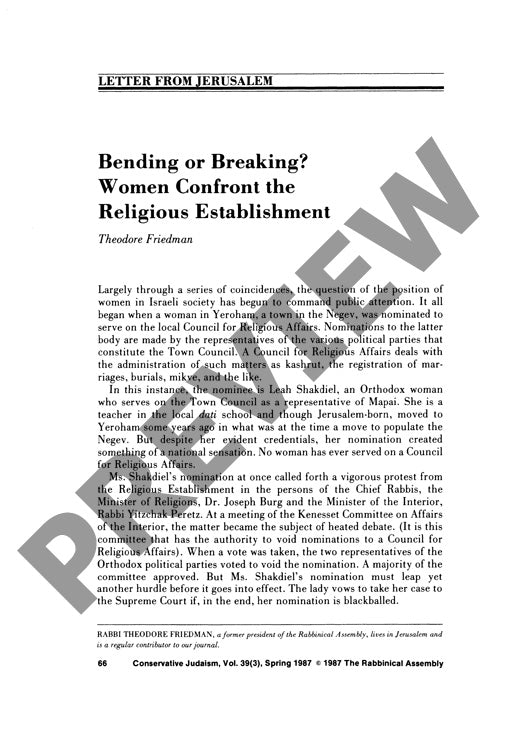Bending or Breaking Women Confront the R
Couldn't load pickup availability
Women challenging Israel's religious establishment face a paradox: while making incremental gains in religious administration, they encounter unyielding resistance on fundamental rights, particularly regarding marriage and divorce. Three watershed cases illuminate this tension: Leah Shakdiel's nomination to Yeroham's Council for Religious Affairs, the appointment of a female gabbai in Safad, and women's inclusion on Tel Aviv's Ashkenazic Chief Rabbi electoral panel. Through qualitative analysis of these contemporary events, coupled with halakhic discourse analysis, the research reveals how religious authorities invoke Maimonidean interpretations of Talmudic sources to oppose women's participation, while alternative Orthodox perspectives from Rabbis Hirschenson and Uzziel offer contrasting views. The plight of approximately seven thousand agunot (chained wives), unable to remarry due to rabbinical court constraints, exemplifies this institutional inflexibility, as documented in Professor Zev Falk's empirical study of divorce cases. Israel's feminist movement lags behind Western democracies, with women notably underrepresented in professional and governmental positions, suggesting that meaningful reform of religious institutions may require broader societal transformation.

More Information
-
Physical Description
-
Publication Information
Published 1987
ISBN
-
Publication Credits
Theodore Friedman

